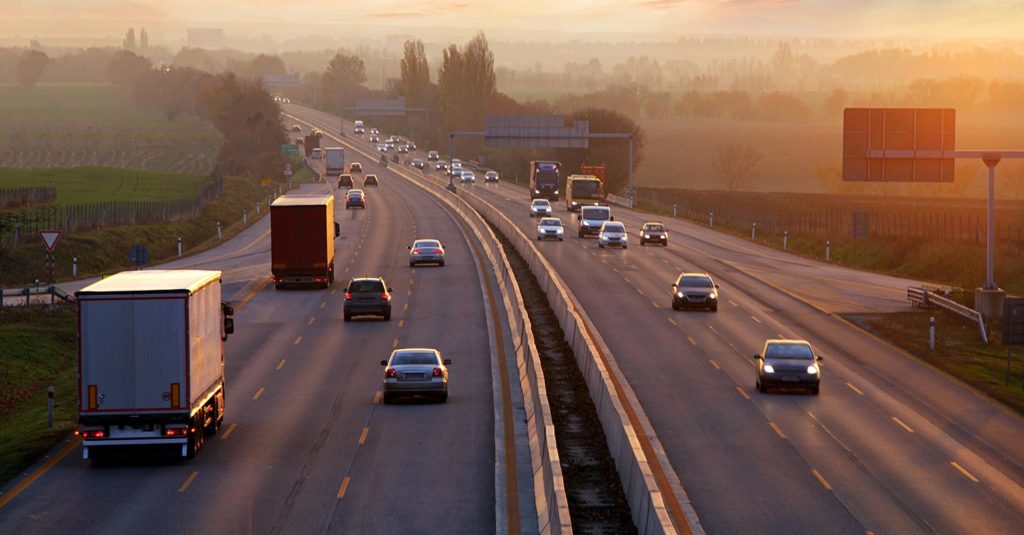New fleet guidance: will your maintenance stand up to scrutiny?
When the Driver & Vehicle Services Agency (DVSA) inspects and investigates goods and passengers operators, their maintenance and/or traffic systems are put under the spotlight. This process may be a physical inspection on-site or it can be a ‘desk-based assessment’.
Revised guidance that explains what the Driver & Vehicle Standards Agency (DVSA) check on maintenance inspection visits, has been published (1 April 2022). Goods and Passenger Operators are strongly advised to understand what is expected of them and what evidence has to be produced to DVSA.
Ashtons Legal provides considerable legal assistance to Operators whose transport management systems have been, or are to be, inspected, and may not be robust enough. Very often, this leads to Traffic Commissioner intervention, such as Preliminary or Public Inquiry Hearings.
DVSA investigations may centre on maintenance and/or traffic compliance (drivers’ hours, Driver CPC, driver training and licensing, working time etc.). Today, this is often done through desk-based assessments (DBAs) where the Operator is required to submit to DVSA full written details of their systems, with accompanying documentation and evidential proof (maintenance inspections, vehicle unit and driver digicard downloads etc.). However, in-person inspections still continue. No in-person visit takes place.
DVSA investigations may occur for a number of reasons:
- roadside stop revealing most serious infringements (MSIs) or other serious shortcomings (e.g. ‘S-marked prohibitions)
- poor prohibition history and/or poor annual test history
- Traffic Commissioner request
- application to increase the licence.
In the latter case, such applications (often for large increases) triggers the Office of the Traffic Commissioner asking the DVSA to investigate. It is commonplace for the findings to be unsatisfactory, with the Operator ending up at a Traffic Commissioner hearing where it seeks the Licence increase, whilst defending its ability to manage the existing fleet properly.
No application for a licence increase should be made without the Operator being prepared to demonstrate their systems are in good shape, not least if the increase sought is large.
Maintenance Investigation Visits
The Guide issued on 1 April 2022 states what DVSA is looking for on maintenance visits and, importantly, how this is evidenced. It is vital for any Operator always to be able to positively show how they comply. If there is a system, it needs to be proved, not just described.
What DVSA looks at does evolve in areas such as brake testing (a real focus in recent years), and some specific focus areas of concern are highlighted in the new Guide. The following areas are of particular concern:
- clear evidence walkaround checks are not carried out
- vehicles being used with reported safety defects
- clear evidence of poor maintenance standards resulting in safety-critical defects
- deliberately modified emissions control systems or removal of the manufacturer’s emissions plate values
- clear evidence of a tyre manufacturer’s date code being modified or removed
- there is no genuine link between the transport manager and the operation.
When conducting a maintenance investigation, DVSA examines operators under the following heads or areas:
- operator legal entity
- condition of vehicles examined at the fleet check
- operating centre
- inspection and maintenance records
- driver defect reporting
- maintenance facilities and arrangements
- vehicle emissions
- wheel and tyre management
- load security – heavy goods vehicles (HGVs) only
- Public Service Vehicle Accessibility Regulations (PSVAR) – public service vehicles (PSVs) only
- prohibition assessment
- security requirements
- previous reported shortcomings, conditions and undertakings
- transport manager/responsible person
- request for explanation response (where applicable).
Request for Explanation (RFE)
Whether they come from physical or desk-based assessments, any shortcomings will be exposed and identified by DVSA.
DVSA will require an Operator and Transport Manager to respond to any shortcomings identified. There is normally a 14-day time limit for this. Sometimes, there are just seven days.
It is imperative that Operators provide the fullest possible information. All too often, an inadequate response is provided. In our experience, all too frequently they fail to supply adequate information to DVSA – often, there is an adequate explanation and available evidence to prove transport management systems in place – but this is not explained and evidenced with documentary proof. An own-goal.
It should be assumed that any response will end up on a Traffic Commissioner’s desk, and should be carefully and fully prepared, with that in mind. Any promises given about future changes will be followed up, and the Operator must follow them through.
After the response has been provided, DVSA will decide what to do and this will range from DVSA accepting that the response is satisfactory or finding it is unsatisfactory, meaning the Traffic Commissioner will receive the DVSA Report and its findings.
It should be noted that simply providing adequate information to DVSA in any reply does not, in itself, mean that no further action will occur. As the Guide states:
“The recommended action for the Examiner to report the Operator to the Traffic Commissioners will not change even if the request for evidence response is satisfactory.”
Contact our road transport solicitors today
If you require any advice with regard to Goods and Passenger Operator Licencing, including advice concerning DVSA Investigations, correspondence with the Office of The Traffic Commissioner or Traffic Commissioner Preliminary Hearing/Public Inquiry work, then please contact us using our online enquiry form or by calling 0330 404 7949.
Tags: Business, Driver & Vehicle Standards Agency, Driver CPC, Drivers Hours, dvsa, Lawyers, operators licence, Regulatory, Road, road transport, Solicitors, Tim Ridyard, Traffic, Traffic Commissioner, Transport
How can we help?
If you have an enquiry or you would like to find out more about our services, why not contact us?

